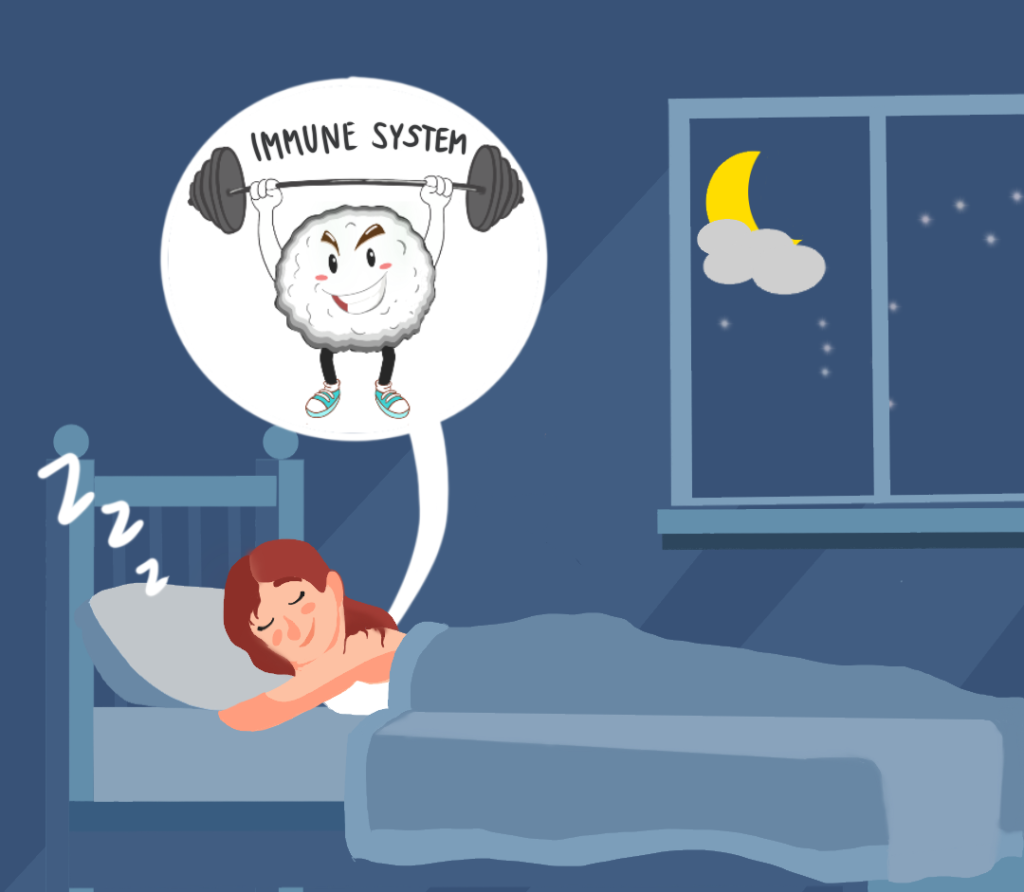Sleep has a big impact on your health. Constant sleep deprivation greatly affects your immune system and can therefore make you more susceptible to catching a cold or the flu. It is very important now, more than ever, to keep your immune system strong.
Why does sleep matter to my immune system?
During sleep, your body is still technically “awake” and it rejuvenates itself. Your body also produces Cytokines– a type of protein that targets infection and inflammation. Cytokines are also released during sleep. Chronic sleep loss means that your body is not producing and releasing enough cytokines, reducing your body’s ability to effectively respond to infection and inflammation.
Sleep has also been found to improve immune cells called T Cells. According to Dr. Stoyan Dimitrov, “T cells are a type of… immune cells that fight against intracellular pathogens, for example virus-infected cells such as flu, HIV, herpes, and cancer cells,” (Healthline, 2019).
T cells play an important role in your body’s immune system. When these cells recognize a virally infected cell, T cells attach to these infected cells and kill them by activating integrins, a sticky type of protein.
The study by Dr. Stoyan et. al compare the T cells from healthy volunteers who either slept or stayed awake all night. Their study found that the participants who slept had T cells that showed higher levels of integrin activation compared to the T cells of those who were awake.
Taking care of yourself
Adults need a minimum of seven hours sleep every night for improved health and well-being. While we’re all in the midst of the COVID-19 outbreak, let’s all try our best to improve our sleep and therefore improve our overall health. Of course, don’t forget to exercise regularly and eat nutritious food. Combine all of these together for a strong and healthy immune system!
